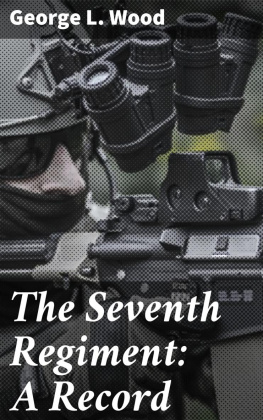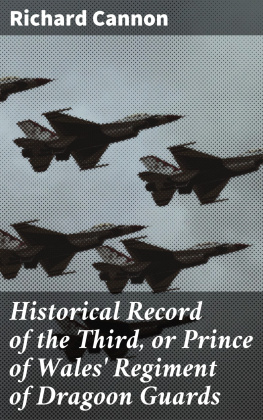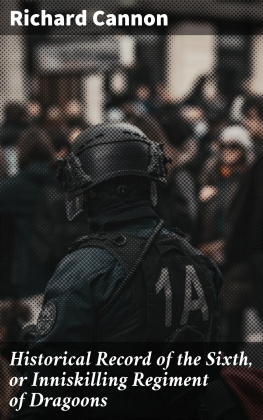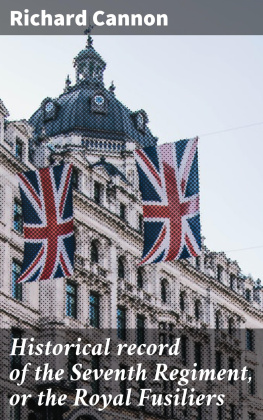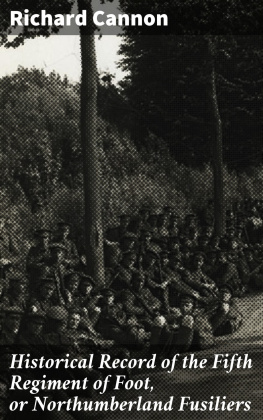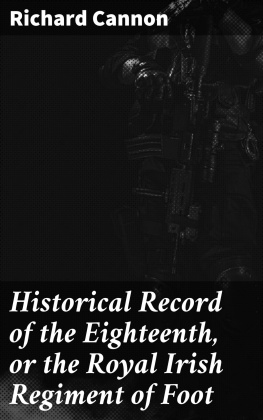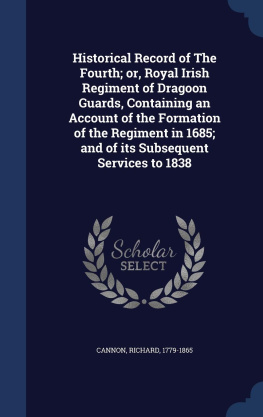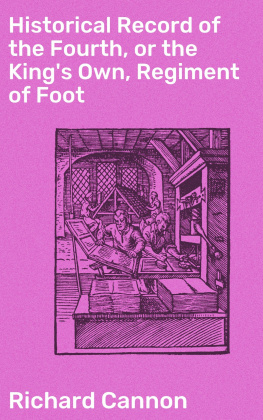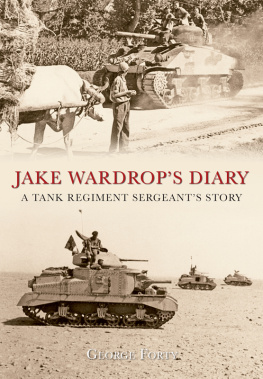PREFACE.
Table of Contents
This preface to the history of the Seventh Ohio Volunteer Infantry is written at the request of the accomplished author of the book; but without having read it, seen it, or heard its contents. I have, however, such confidence in the ability, honesty, candor, good judgment, and good taste of my old friend and "companion in arms," that, for myself, I take his work on trust, and in cheerful faith commend it to others.
But was there a demand for another book on the war? Or were the doings and sufferings of one regiment, among the thousands engaged in the war, of such interest as to demand a separate history? These are questions the author doubtless weighed carefully before he began to write; and his answer to them is his book. I agree with him. This nation has a deep, and will have a lasting, interest in the war. We have been making history of unrivalled, perhaps of unequalled, importance to the world during the past four years. We ourselves cannot comprehend the magnitude of the work we have been doing, or, rather, that God has been doing through us. The successful revolts of the Netherlanders against the tyranny of Philip II.of the Puritans against the tyranny of Charles I.of the republicans against the tyranny of George III., dwindle to insignificance (important as they were) in comparison with the successful revolt of the loyal, Union-loving, freedom-loving citizens of this Republic against the tyranny of treason and slavery. It was a great fight for a great cause, and God has given us a great victory. There was not a nation on earth that was not interested in the conflict. Ay, it concerned our common humanity. All this will be seen more clearly and felt more deeply twenty, fifty, a hundred years hence than now. But to transmit and perpetuate the fruits of this victory we must have records of the warmany records, made from many different points of view, and of many kinds, great and small. The history of this war is not yet written, perhaps cannot be successfully written for many years yet. And that it may one day be written as it should be, every regiment that has a story to tell should tell it. These regimental histories will be invaluable to the Bancroft who, fifty years hence, shall write the history of this war. The world is only beginning to understand the true character and vocation of historyto make the past live in the present; not in great pageants, not in processions of kings, princes, and mighty conquerors, but in the common every-day speech and deeds of the people. When Merle d'Aubign would write the History of the Reformation, he wrote to Guizot for counsel. Guizot encouraged him, and counselled him to proceed, but added, "Give us facts, incidents, details." This counsel chimed with the purpose and genius of d'Aubign, and the result was a history that, though it discusses doctrines and themes commonly held to be dry and uninteresting, has for old and young, and men of all classes, all the charm of romance. In this, his "facts, incidents, details," equally with his fascinating style, lies the charm of the histories of Macaulay. But that historians may write such historiesthat the historian of this war may write such a history, the "facts, incidents, details" must be on record. There is a demand, therefore, for another book, for many other books, on the war.
In addition to this, every regiment of the grand Army of the Union in this war has its own history, of peculiar interest to its own especial friends. And I have faith in what Dr. O. W. Holmes once said: "I would not give a fig for a man every one of whose geese were not better than any other man's swans." To us of the old Seventh "all our geese were swans." Whether others believed in us or not, we had faith in ourselves and in one another; we were a mutual admiration society of a thousand and odd men. And the fact is, that, for some reason, but what I cannot say, the Seventh Regiment, from the day it was mustered into service to the day it was mustered out, was always the pride and pet of Ohio, of Northern Ohio especially. In this respect it never had a rival. True, it was a well-disciplined, gallant, fighting regiment; but so were many others. True, it had brave and accomplished officers; but so had many others. True, it had in the ranks men of refinement, education, and high social position; but so had many others. I am at a loss to account for it, but the fact nevertheless was as I have stated it; and as its deeds corresponded with its renown, its doings, of all others, demand a permanent record. And, if I am not mistaken, the reader of the following pages who shall follow the Seventh from the day it was mustered into service, in Cleveland, in 1861, to the day the pitiful remnant of it, after tramping and fighting over almost half the Union, were mustered out of service, in Cleveland, in 1864, will find in them ample compensation for his time.
F. T. B.
Chicago, Ill. , May, 1865.
CHAPTER I.
The fall of Sumter.Civil war begun.Preparations by the South.Nobility.
Table of Contents
On a gloomy day in April, 1861, the telegraph flashed the news over the country that Fort Sumter, a fortress belonging to the United States, had been fired upon by a body of rebels, and thus inaugurating all the horrors of civil war.
By the great mass of people, civil war in our hitherto peaceful country was entirely unlooked for. It burst so suddenly, that the entire country was convulsed. The people had become so accustomed to clamor in Congress and elsewhere, that they looked upon these threats to dissolve the Union as mere bravado.
After the first clash of arms at Fort Sumter, both North and South drew back in alarm, as if in fear of the coming storm. The Southern people, however, better prepared by education for scenes of strife and bloodshed, received the news of the inauguration of civil war with less alarm than did those of the North. The latter received it with a fearful dignity, conscious of the power to crush the rebellion. The South, with that arrogance that becomes her so well, expected to make an easy conquest. Long-continued exercise of power in national matters, had taught her to look upon the people of the Free States as her inferiors, needing but a master-stroke for their subjugationwilling to lay down their arms, and seek safety in dishonor. They had taken us for a race of cowards, because we had given way to their selfish demands in our public councils, for the sake of peace. To be sure, we had some daring spirits in Congress who met these bullying traitors, making them feel the full force of Northern valor. But these were isolated cases, and won the respect of the Southern people to the persons of the actors rather than to the North as a people. They looked upon these spirited examples as rather proving the fact of our want of chivalry than otherwise, and therefore were not corrected in their false estimate of a people whom they were about to meet on bloody fields.
One reason the South had for cherishing so mean an opinion of the North as a military power, was on account of her having entirely neglected the cultivation of the art of war. She had so few representatives in the army and navy, that they were both almost entirely within the control of the South.
This control the latter had exercised for years, until her people came to look upon themselves as the only persons in the country fit to bear arms. They flattered themselves that they were the army, and we but a rabble, to be dispersed beyond the hope of reorganization at the first clash of arms. But in this strife, like all others where aristocratic privilege comes in contact with the freedom of democracy, these arrogant lords were to meet with a bitter disappointment; they were to be made to respect the strong muscle and brave hearts of the so-styled plebeian North.


